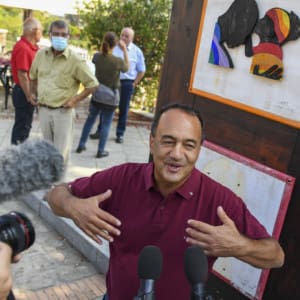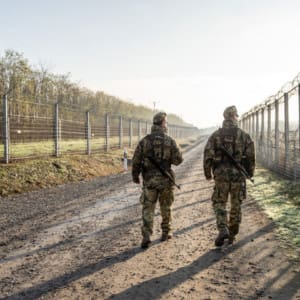German reunification is not over yet, German Chancellor Angel Merkel warned on Sunday, just as the country’s main parties were gearing up for difficult coalition talks.
In her last speech for German Unity Day on Oct. 3, the day when the gold-red-black flag of West Germany was first flown over the Brandenburg Gate as the official recognition of reunification in 1990, Merkel obliquely called on all parties involved in coalition talks to put their differences aside.
She was speaking in Halle in the former East German province of Saxony-Anhalt. Merkel herself — although born in Hamburg — grew up and started her scientific career as a physicist in Eastern Germany after her father, a Protestant theologian, fled East to live under communism for ideological reasons.
Merkel said in her speech that while open debate and dialogue are essential, it is more important to realize that beyond the differences, common values must be paramount.
“Be prepared for new meetings, be curious about one another, tell your own history and tolerate differences. This is the learning from 31 years of German unity,” Merkel said.
In her speech, she pointed out that reunification is not finished from s structural point of view, with a significant wealth gap still separating the East from the West. She claimed that this is one of the reasons that Alternative for Germany (AfD) has managed to post significant gains in the federal states of Saxony and Thuringia. Merkel made no mention about her role in allowing over 1 million migrants to settle in the country, which was one of the primary catalysts for the rise of the AfD.
The Social Democrats (SPD) won the German elections with a slim margin over the conservative CDU-CSU. With both large parties excluding the possibility of a grand coalition, either would need the support of the liberal FDP and the Greens to form a majority government. Coalition talks began Sunday afternoon.






